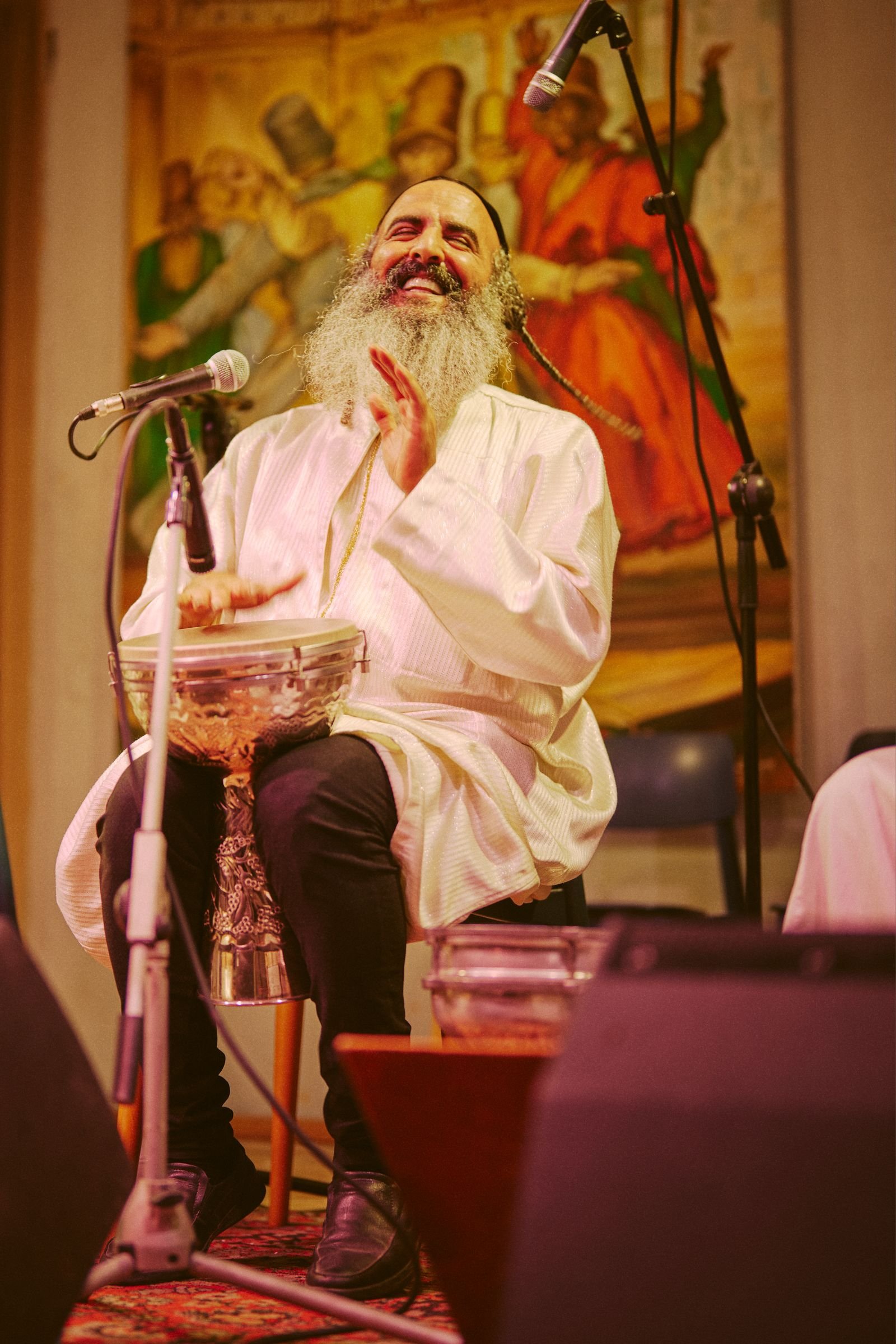Boaz Gadka
Jewish Mizrahi Male in his 40s
living in the Central District.
My father is the merging of two worlds. He is the dawn of a new trajectory and a window into the powerful legacy of a world no longer. My father was born on the road from Yemen, on the journey his parents took in hopes of giving him a better life.
When they arrived in the newly established State of Israel, they chose to move to Kiryat Ono because of its religious society. After all, my grandfather was a very righteous man. He was one of those pure souls, loved by all, and he used to bless everyone he came across. My father took after him, a similar mixture of happy and religious; the sun truly shone from him.
My father was an expert in Yemenite song, raised on the melodies of his own father and the entire community which enveloped him. That’s how it is, being part of a community. He used to sing at weddings, occasions, any event, prayers. He was a famed Hazzan and on the High Holy days people would come from all over the world – even the United States – to hear him sing.
I was born the fifth out of my parents’ twelve children, also in Kiryat Ono. Yemeni tradition prescribed my entire childhood: from the school I attended to the synagogue I prayed at, I was deeply immersed in the rich tradition I inherited from my parents. I was lucky to grow up surrounded by music, not only from my family, but also from our tight-knit community who taught and inspired me, from my neighbour and teacher, Nissim Matari, to the choir of the bnei teiman, children of Yemen, where we sang and danced and learned to love music.
I always wanted to impress my father, whom I loved dearly, so I would sing for our family whenever they encouraged me. I remember vividly the first time I sang in front of an audience. I was ten years old, a small and bright-eyed child. I was called up to the bima and I sang two songs - Tzur Menati and an Arabic song, Qal Aladid. When I finished, there was barely a dry eye in the room. They called me a wunderkind. It was a joy I hadn’t felt before and I haven’t stopped singing since. And that characterised the rest of my childhood, being invited to sing. I’m honored to be able to bring people joy through the gift that G-d gave me.
Yemeni Jewish music is like no other, imbued with our community’s particularities. The destruction of the Temple was something that remained ever present through our respect for the laws of mourning: for centuries we carefully adhered to the prohibition against playing musical instruments. A unique musical style developed without instruments, allowing us to refine our harmonic singing and develop a distinctive rhythm. And so, I perform today with just my voice and a tin-can, making space for the song to speak for itself.
I feel that the preservation of Yemenite tradition is both my privilege and responsibility. I make YouTube videos explaining our culture. I’m a comedian trying to share our values while inspiring smiles. I invested a lot of energy and resources into a radio station, which broadcast our traditions across the world for seven years. I always look for new ways to expand.
I love collaborating with others. Something about the dynamics creates far richer music, letting our energy bounce off each other. I think that in matters of the soul, 1 plus 1 sometimes does equal 3. We can create new entities greater than the sum of their parts, helping and enhancing one another. That’s always been my attitude. Working with a slightly older friend on an album that spoke across generations, I felt we created something sublime. I also helped form a band that fuses Blues and Yemenite melodies, reaching realms beyond imagination.
Around seven years ago, I was invited to perform in Poland for a Yemenite cultural evening. It was Passover eve, and my wife, seven children and I brought the spirit of Yemen to the community for the first time. The connection we formed was so deep and so pure that they invited me to be their Rabbi. I accepted, and that’s how I, Boaz Gadka, son of Yemen, came to be the Rabbi of an Ashkenazi congregation in Krakow. I travel there for a week every month. I learned Polish, their tunes, and their customs, and I share my own roots with them too. There is something beautiful about preserving tradition while making space to listen, learn, and share. We are all one nation, one people, but when our different cultures come together, we create a very special harmony.

